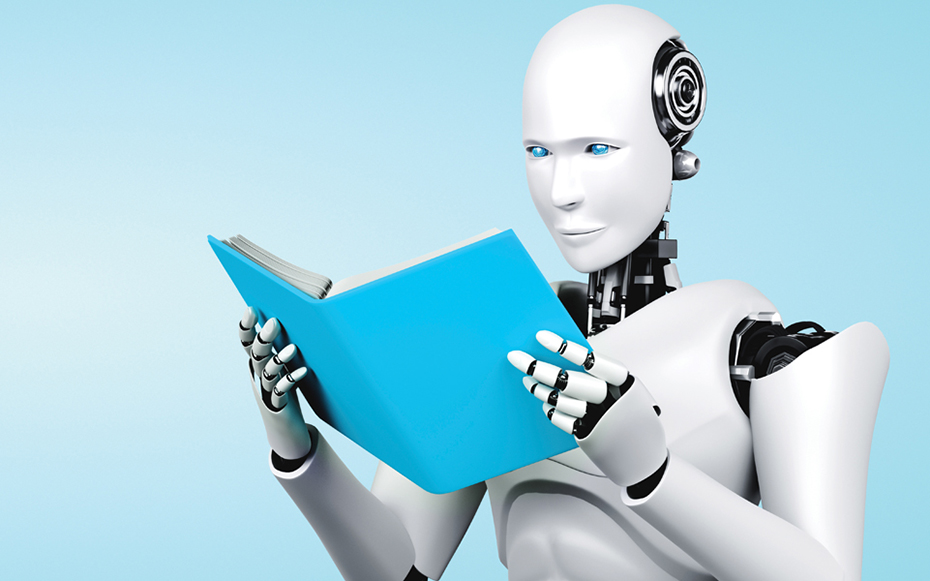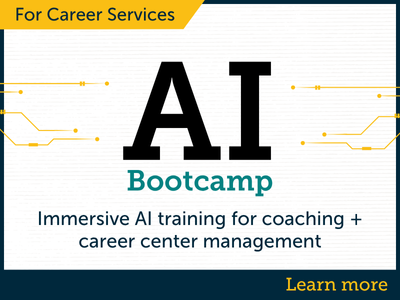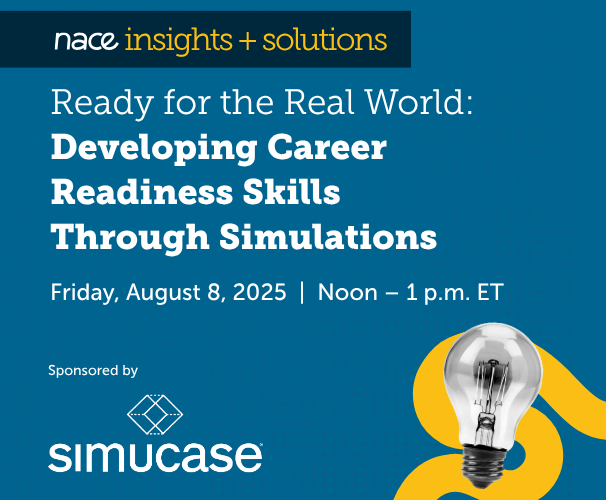A NACE quick poll found that AI is beginning to make inroads into the work lives of career services professionals.
NACE Journal/Summer 2023
What place does artificial intelligence (AI) have in the work lives of career services professionals? Is it being used? And, if so, how? And with whom? And for what?
To address these basic questions, NACE polled its members in spring 2023. Nearly 300 career services professionals responded, providing insight into how career centers are incorporating AI.
NACE Quick Poll
In spring 2023, NACE polled members about their use of AI. The polls—one geared toward career services professionals and the other toward employers—ran May 2 through May 23, with results provided in real time. The data in this article reflect responses from 284 career services professionals. Most (90%) were from four-year colleges.2 in 5 Have Used AI for Tasks, Fewer Have Used It With Students
More than 40% of career services professionals taking part in the poll reported using AI for work tasks over the last year. Composing email and letters and answering questions were the most common uses, suggesting that users see AI as an aid to shaping their thoughts. Supporting this idea is a number of “other” responses that indicated they used AI for brainstorming.
Fewer, however, have tapped into AI for student-facing work. Among the 41% who said they used AI, only slightly more than half have used it with students. (So, only about 20% of all respondents have used it with students.) Here too, use has been largely around streamlining thought processes, with creating resumes and cover letters and helping students answer questions (most likely as part of prepping for interviews) the most frequent uses. (See Figure 1.)
Among those who haven’t used AI but are considering it, composing communications and working with students on various job-search-related activities were also most frequently cited as potential uses.
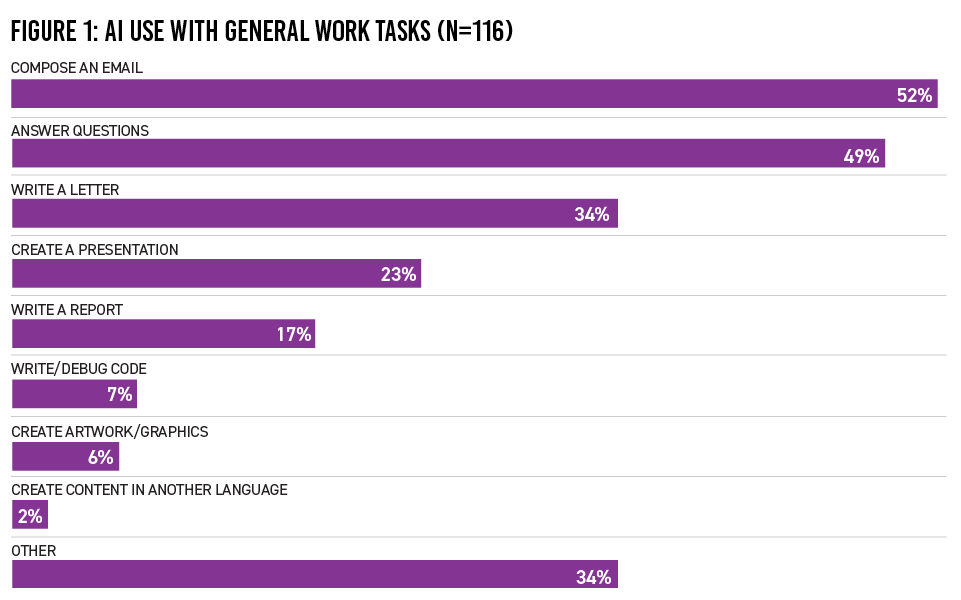
Perceived Pluses and Perils
Virtually all respondents saw the potential for both good and bad in AI.
Overall, respondents largely agreed on pluses that align with the key benefits of technology in general: Nearly 80% acknowledged AI’s potential for improving efficiency, and nearly half cited its potential for reducing costs—often a byproduct of greater efficiency. (See Figure 2.)
Most of the concerns cited by respondents revolve around AI’s potential for exploiting human weaknesses rather than for dominating the human race. AI’s potential for facilitating plagiarism, unethical behavior, misinformation, and cheating were concerns expressed by more than 65% of respondents, while far fewer cited concerns about doomsday-esque outcomes. (See Figure 3.)
Outside of the poll, AI-related discussions at NACE’s 2023 Conference revolved around concerns about student misuse, notably the potential for cheating on employment assessments.
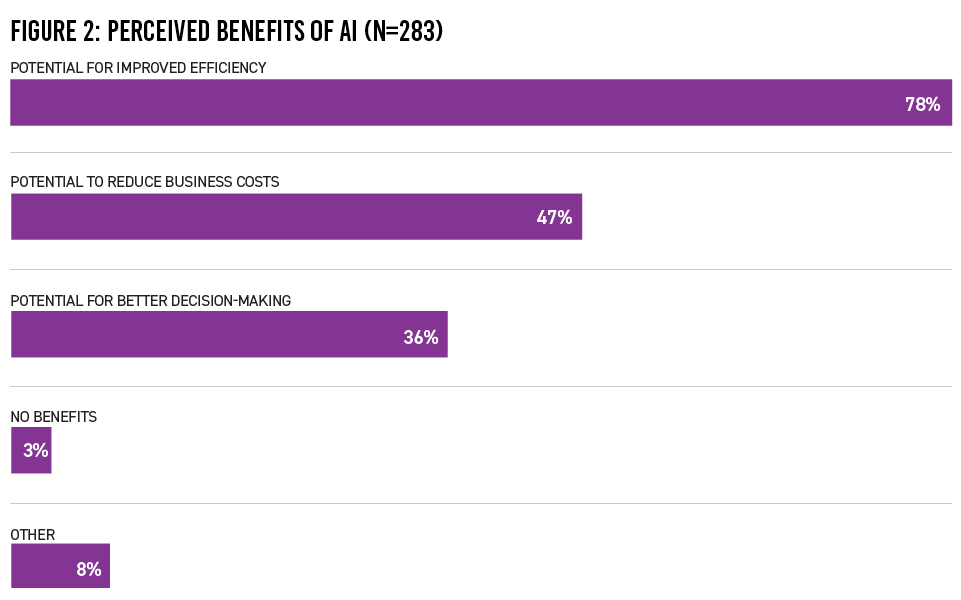

Students and AI
Career services professionals were also asked about how their students were using AI.
Nearly one-quarter said they were not aware of students using AI, but nearly half said students were using it to write papers for their classes. In terms of job-search materials, respondents reported that their students were using AI to write cover letters (49%) and resumes (42%). Five percent also reported that their students were using AI as part of their internships.
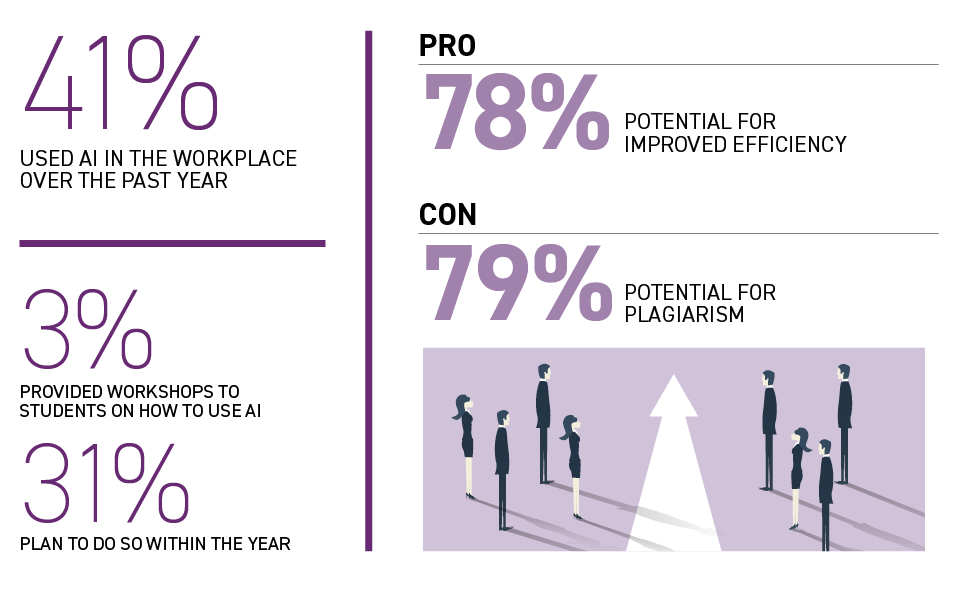
Proceeding With Caution
A majority of respondents were hesitant about using AI: Nearly 60% said they are unsure whether they would use it to perform workplace tasks over the next year.
Although the poll did not delve into reasons for the hesitancy, it is likely that lack of knowledge about and familiarity with AI is one of the drivers. Also not helping: the flood of dire predictions featured in the media about how AI could be misused.
However, although they may not be confident about using it in their own work lives, nearly one-third expect to offer workshops to students on AI use within the year, a clear indication that they expect AI to play a role in career development and want to prepare their students.
As career services professionals become more familiar and gain greater understanding of how AI can be used—effectively and ethically—it is likely that AI will be used by many to support their efforts.
What can humans do that AI cannot?
Nearly 40% of career services professionals responding to NACE’s AI quick poll expressed concern about AI’s potential for eliminating jobs.
AI’s strengths are impressive, suggesting it could be a fierce competitor.
First, AI’s ability to “process and analyze large amounts of data very quickly” allows “AI to learn and make predictions at a much faster rate than humans can,” says Bard, Google’s AI platform.
And, according to ChatGPT, AI can “learn from its mistakes. As AI is exposed to more data, it becomes better at making predictions and decisions. This means that AI can constantly improve its performance over time.” (Editor’s note: ChatGPT did throw humans a bone here, noting that machines and humans “have different approaches to learning from mistakes” and “neither is inherently better.”)
Moreover, “AI is not limited by the same physical constraints as humans,” notes ChatGPT. “AI can work 24/7 without getting tired or bored. This means that AI can be used to perform tasks that would be too time-consuming or dangerous for humans.”
So, AI gets props for speed, stamina, and an ingrained bent toward continuous improvement.
Where does that leave mere mortals?
Bard and ChatGPT cite humans’ critical thinking, creativity, and problem-solving abilities as superior, with ChatGPT noting that “human creativity involves imagination, insight, and the ability to think beyond existing patterns or data.”
ChatGPT also acknowledges humans’ emotional intelligence, adaptability, and moral compass—and the ability to make value-based judgments—as key strengths. It also gives humans points for being better at doing more with less: “Humans can often learn new concepts or tasks from only a few examples, whereas AI models often require large amounts of data to achieve similar proficiency,” says ChatGPT.
Bard’s acknowledgements are not nearly as fulsome, although it does compliment humans for having “a number of other qualities that make them valuable in the workplace, such as empathy, teamwork, and social skills.” So, we humans aren’t the smart kid, but that’s okay because we’re more fun.
What is the difference between automation and AI?
Automation follows a set of predefined rules; it is designed to manage repetitive tasks.
AI simulates human thinking; to reach conclusions, it “learns” from information it receives and from its experiences. AI is for nonrepetitive tasks.
More About AI
Articles
Avoiding Potential Legal Pitfalls Associated With AI Use
Employers Cautious About Using AI in Recruiting Efforts
Webinars
NACE Summer Learning Showcase: AI in Career Services and Recruitment
Automatically Scored Interviews: Incorporating AI and Preemployment Assessments



